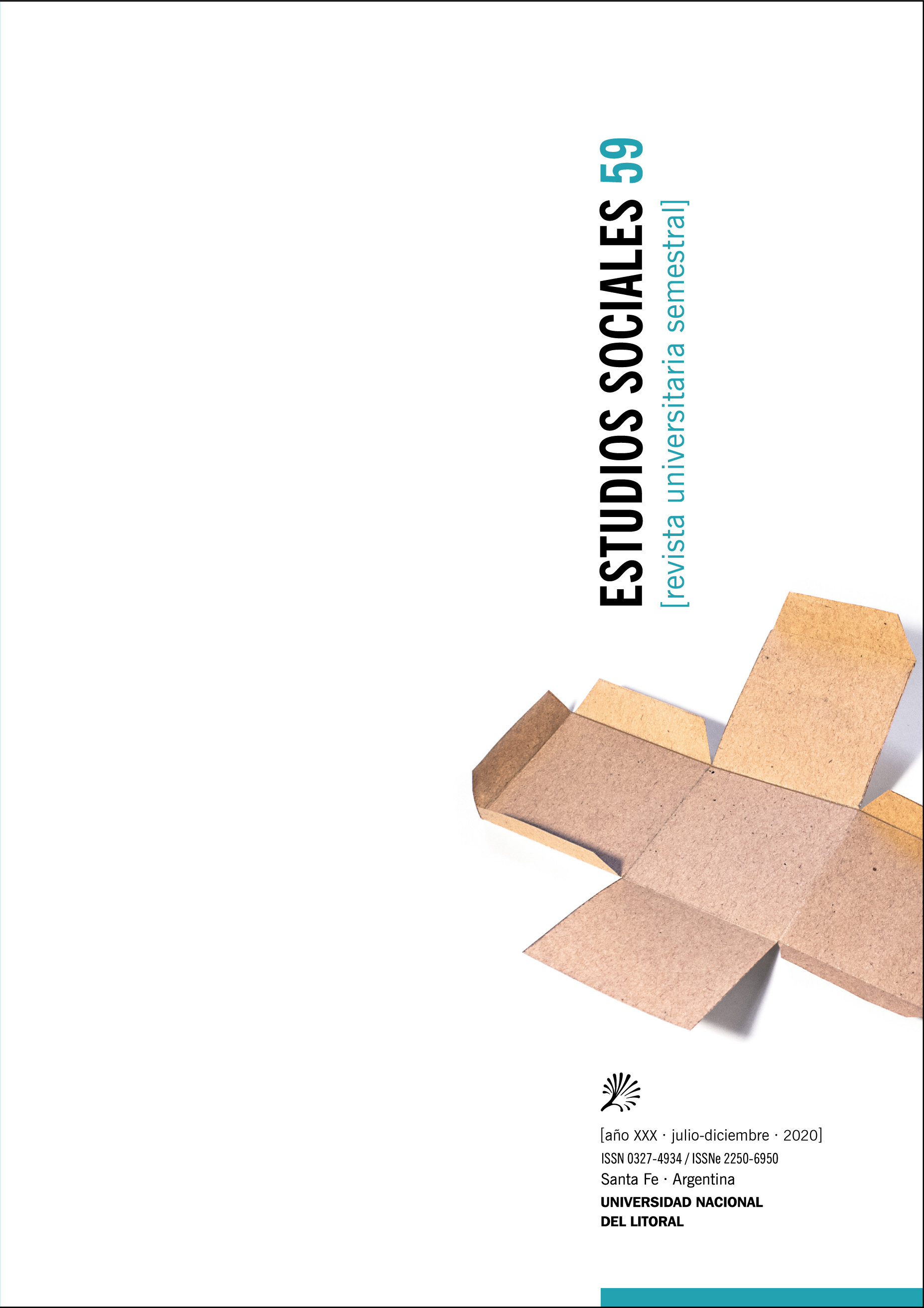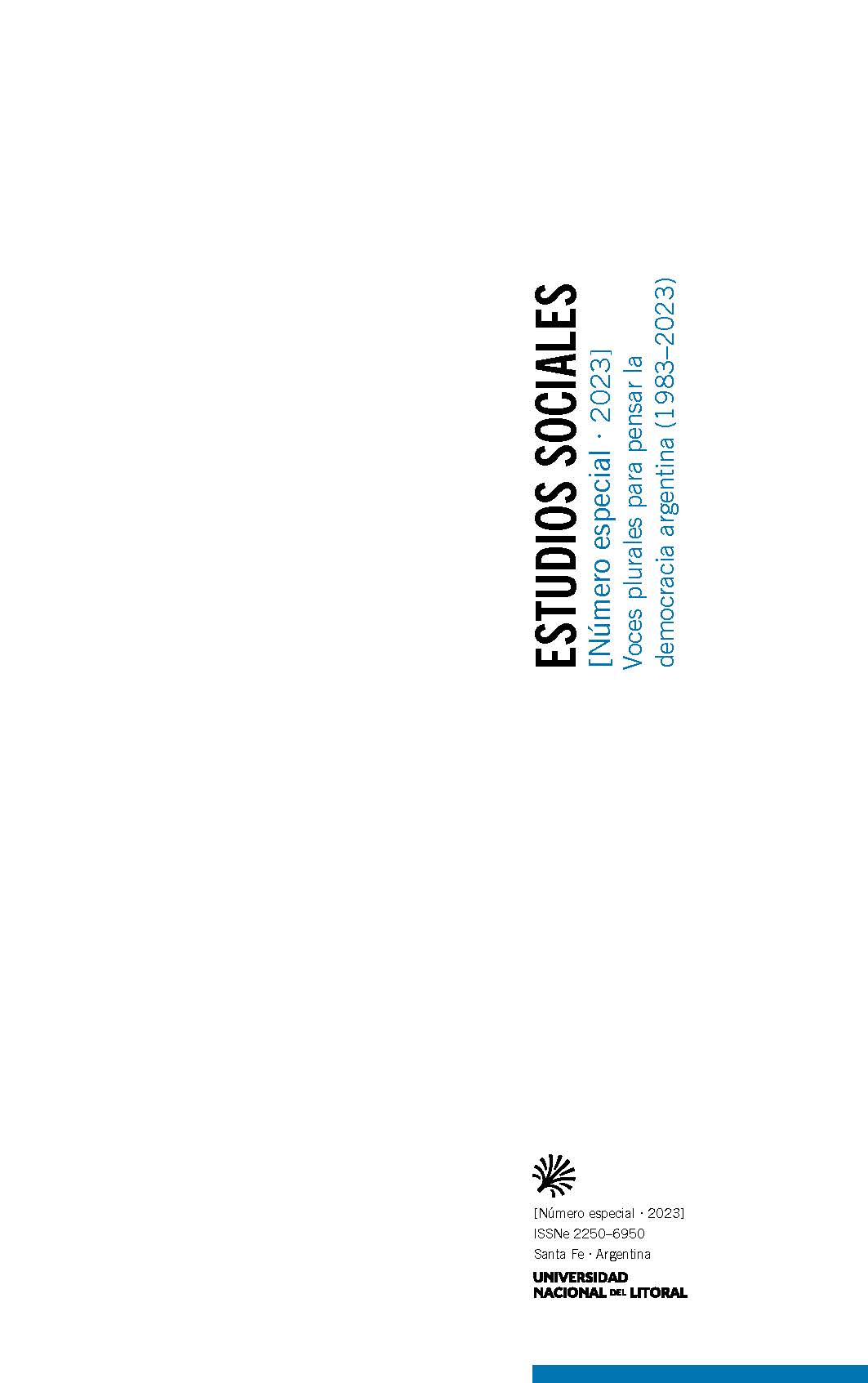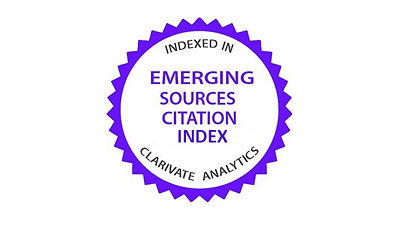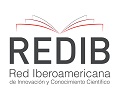La intervención del derecho internacional (latino)americano
La hegemonía estadounidense y el debate sobre la intervención en los orígenes del Sistema Interamericano
DOI:
https://doi.org/10.14409/es.v59i2.9508Palabras clave:
Derecho internacional, América Latina, Intervención, Estados Unidos, Sistema InteramericanoResumen
Este artículo examina los debates suscitados en torno a la conformación del derecho internacional, la naturaleza de la Doctrina Monroe y el principio de intervención en la etapa de ascenso de los Estados Unidos como imperio informal en América Latina y la formación del Sistema Interamericano. Se argumenta que este proceso contribuyó al surgimiento de tres tradiciones legales antagónicas en la región que surgieron al calor del intervencionismo y la hegemonía estadounidenses.
Citas
ÁLVAREZ, ALEJANDRO (1910) : Le droit international américain: son fondement, sa nature, Paris, A. Pedone Éditeur.
ÁLVAREZ, ALEJANDRO (1918): «Derechos fundamentales de los Estados», en: Instituto Americano de Derecho Internacional, Actas, memorias y proyectos de las sesiones de la Habana (Segunda reunión del Instituto) 22 a 27 de enero de 1917, New York, Oxford University Press, pp. 376–383.
ÁLVAREZ, ALEJANDRO (1923): La codificación del derecho internacional en América: trabajos de la tercera Comisión de la Asamblea de Jurisconsultos reunida en Santiago de Chile, Santiago, Imprenta Universitaria.
AMERICAN INSTITUTE OF INTERNATIONAL LAW (1925): Informal Conversations of Lima, December 20–31, Washington, DC, Carnegie Endowment for International Peace.
ANGHIE, ANTONY (2007): Imperialism, sovereignty and the making of international law, Cambridge, Cambridge University Press.
BARCIA TRELLES, CAMILO (1931): Doctrina de Monroe y cooperación internacional, Madrid, Editorial Mundo Latino.
BARRETO, JOSÉ MANUEL (2012): «Imperialism and decolonisation as scenarios of human rights history», en: Barreto, José Manuel (ed.). Human rights from a Third World perspective: Critique, History and International Law, Newcastle, Cambridge Scholars Publishing, pp. 140-171.
BECKER LORCA, ARNULF (2006): «International Law in Latin America or Latin American International Law? Rise, Fall, and Retrieval of a Tradition of Legal Thinking and Political Imagination», en: Harvard International Law Journal vol. 47, nº 1, pp. 283–305.
BECKER LORCA, ARNULF (2015): Mestizo International Law: A Global Intellectual History, 1842–1933, Cambridge, Cambridge University Press.
BROWN SCOTT, JAMES (1916): The American Institute of International Law: Its Declaration of Rights and Duties of Nations, Washington, DC: The American Institute of International Law.
BROWN SCOTT, JAMES (1918): «Primera sesión, 22 de enero de 1917. Discurso del Doctor James Brown Scott, presidente del Instituto» en: Instituto Americano de Derecho Internacional, Actas, memorias y proyectos de las sesiones de la Habana (Segunda reunión del Instituto) 22 a 27 de enero de 1917, New York, Oxford University Press, pp. 27–42.
BROWN, SCOTT, JAMES (1926): «La Enmienda Platt: lo que es y lo que no es», en: Brown Scott, James, Cuba, la América Latina, los Estados Unidos, La Habana, El Siglo XX, pp. 54-116.
BROWN SCOTT, JAMES (1927): «Scott to Maurtua», 18/06/1927, en: Carnegie Endowment for International Peace Records, Division of International Law, vol. 308, p. 863.
CAROZZA, PAOLO G. (2003): «From Conquest to Constitutions: Retrieving a Latin American Tradition of Human Rights», en: Human Rights Quarterly, vol. 25, pp. 281–313.
CRAVEN, MATTHEW (2016): «Theorising the Turn to History in International Law», en: Orford, Anne y Hoffman, Florian (eds.), The Oxford Handbook of the Theory of International Law, Oxford, Oxford University Press, pp. 21-37.
DRAGO, LUIS MARÍA (1903): La República Argentina y el caso de Venezuela, Buenos Aires, Coni hermanos.
ESLAVA, LUIS, OBREGON, LILIANA y URUEÑA, RENÉ (2016): «Imperialismo(s) y derecho(s) internacional(es): ayer y hoy», en: Eslava, Luis, Obregón, Liliana y Urueña, René (eds.), Imperialismo y derecho international, Bogotá, Siglo del Hombre Editores, Universidad de los Andes, Pontificia Universidad Javeriana, pp. 13–94.
FABELA, ISIDRO (1920): Los Estados Unidos contra la libertad, estudios de historia diplomática americana: Cuba, Filipinas, Panamá, Nicaragua, República Dominicana, Barcelona, Talleres Gráficos Lux.
FABELA, ISIDRO ([1929] 1955): «Los Estados Unidos y la América Latina (1921–1929)», en: Cuadernos Americanos, vol. 14, pp. 7-80
FABELA, ISIDRO (1957): Las Doctrinas Monroe y Drago, México, Universidad Nacional Autónoma de México.
GRANDIN, GREG (2012): «The Liberal Traditions in the Americas: Rights, Sovereignty, and the Origins of Liberal Multilateralism», en: American Historical Review, vol. 117, nº 1, pp. 68–91.
HUGHES, CHARLES EVANS (1928): «Speech at the last Plenary Session of the Sixth International Conference of American States, Havana, Cuba, 18th February, 1928», en: Report of the Delegates of the United States to the Sixth International Conference of American States, Washington DC, Government Printing Office, pp. 13-16.
INTERNATIONAL COMMISSION OF JURISTS (1928): «International Commission of Jurists (Sessions held at Rio de Janeiro, Brazil, April 18th to May 20th, 1927), Public International Law: Projects to be submitted for Consideration of the Sixth International Conference of Americas States», en: American Journal of International Law, vol. 22, Special Number, pp. 234–329.
KOSKENNIEMI, MARTTI (2005): The Gentle Civilizer of Nations: The Rise and Fall of International Law, 1870–1960, Cambridge: Cambridge University Press.
MAURTUA, VÍCTOR MANUEL (1940): Páginas diplomáticas: La codificación americana del derecho internacional (Ensayos, proyectos, discursos), Lima, Librería e Imprenta Gil.NEFF, STEPHEN C. (2014): Justice Among Nations: A History of International Law, Cambridge, MA: Harvard University Press, 2014.
PITTS, JENNIFER (2017): «International Relations and the Critical History of International Law», en: International Relations, vol. 31, nº 3, pp. 282-298.
ROIG DE LEUCHSENRING, EMILIO (1928): «El principio de no intervención en el Instituto Americano de Derecho Internacional y en la Comisión de Jurisconsultos Americanos», en: Revista de Derecho Internacional, vol. 7, pp. 367–385.
ROOSEVELT, THEODORE (1904): «Annual Message of the President to Congress», en: Papers relating to the Foreign Relations of the United States, 1904, Washington, DC, Department of State.
ROOT, ELIHU (1916): «Cuba», en: Bacon, Robert y Brown Scott, James (eds.), The Military and Colonial Policy of the United States: Addresses and Reports, Cambridge, MA: Harvard University Press, pp. 185-224.
SEXTON, JAY (2011): The Monroe Doctrine: Empire and Nation in Nineteenth-Century America, New York, Hill and Wang.
SIKKINK, KATHRYN (2018): Evidence for Hope: Making Human Rights Work in the 21st Century, Princeton, Princeton University Press. SCARFI, JUAN PABLO (2013): «La emergencia de un imaginario latinoamericanista y antiestadounidense del orden hemisférico: de la Unión Panamericana a la Unión Latinoamericana (1880-1913)», en: Revista Complutense de Historia de América, vol. 39, pp. 81-104.
SCARFI, JUAN PABLO (2014): El imperio de la ley: James Brown Scott y la construcción de un orden jurídico interamericano, Buenos Aires, Fondo de Cultura Económica.
SCARFI, JUAN PABLO (2016): «In the Name of the Americas: The Pan-American Redefinition of the Monroe Doctrine and the Emerging Language of American International Law in the Western Hemisphere, 1898–1933», en: Diplomatic History vol. 40, nº 2, Oxford, pp.189–218.
SCARFI, JUAN PABLO (2017): The Hidden History of International Law in the Americas: Empire and Legal Networks, New York, Oxford University Press.
SCARFI, JUAN PABLO (2018): «Globalizing the Latin American legal field: continental and regional approaches to the international legal order in Latin America», en: Revista Brasileira de Política Internacional, vol. 61, nº 2, pp. 1-12.
SCARFI, JUAN PABLO (2020): «Denaturalizing the Monroe Doctrine: The rise of Latin American legal anti-imperialism in the face of the modern US and hemispheric redefinition of the Monroe Doctrine», en: Leiden Journal of International Law, vol. 33, nº3, pp. 541-555. doi:10.1017/S092215652000031X
VEÇOSO, FABIA FERNANDES CARVALHO (2020): «Intervención, deuda externa y la conformación del orden espacial en América Latina: el bloqueo de Venezuela revisitado, 1902-1903», en: Estudios Sociales, vol. 59.2.
WHITAKER, ARTHUR P. (1969): The Western Hemisphere Idea: Its Rise and Decline, Ithaca, NY, Cornell University Press.
Descargas
Publicado
Cómo citar
Número
Sección
Licencia
Los artículos publicados en Estudios Sociales. Revista Universitaria Semestral se encuentran disponibles gratuitamente en la Biblioteca Virtual de Publicaciones Periódicas de la Universidad Nacional del Litoral: http://bibliotecavirtual.unl.edu.ar/publicaciones.
El contenido está bajo Licencia Creative Commons Atribución-NoComercial-Compartir Igual 4.0 Internacional (BY-NC-SA): no se permite un uso comercial de la obra original ni de las posibles obras derivadas, la distribución de las cuales se debe hacer con una licencia igual a la que regula la obra original.
 Los artículos que sean aceptados, deberán ser acompañados del documento "Autorización para Publicar" que contiene la firma de los autores, en donde se acepta la originalidad del documento y autorizan a la Revista a la publicación del mismo. Las opiniones vertidas por los autores en sus artículos no reflejan necesariamente el parecer de Estudios Sociales. Revista Universitaria Semestral. El contenido de cada trabajo es responsabilidad exclusiva de su autor. En caso de que se utilicen trabajos, datos y/o palabras de otros autores, éstos tienen que ser debidamente citados. Cualquier contenido que sea detectado como fraudulento será elevado al Consejo Editorial de la revista para su revisión, quienes evaluarán el caso y determinarán los pasos a seguir.
Los artículos que sean aceptados, deberán ser acompañados del documento "Autorización para Publicar" que contiene la firma de los autores, en donde se acepta la originalidad del documento y autorizan a la Revista a la publicación del mismo. Las opiniones vertidas por los autores en sus artículos no reflejan necesariamente el parecer de Estudios Sociales. Revista Universitaria Semestral. El contenido de cada trabajo es responsabilidad exclusiva de su autor. En caso de que se utilicen trabajos, datos y/o palabras de otros autores, éstos tienen que ser debidamente citados. Cualquier contenido que sea detectado como fraudulento será elevado al Consejo Editorial de la revista para su revisión, quienes evaluarán el caso y determinarán los pasos a seguir.
Estudios Sociales. Revista Universitaria Semestral adhiere al Código de Conducta y Guía de Buenas Prácticas para editores científicos del Comité de Ética de Publicaciones (COPE):http://publicationethics.org/
















